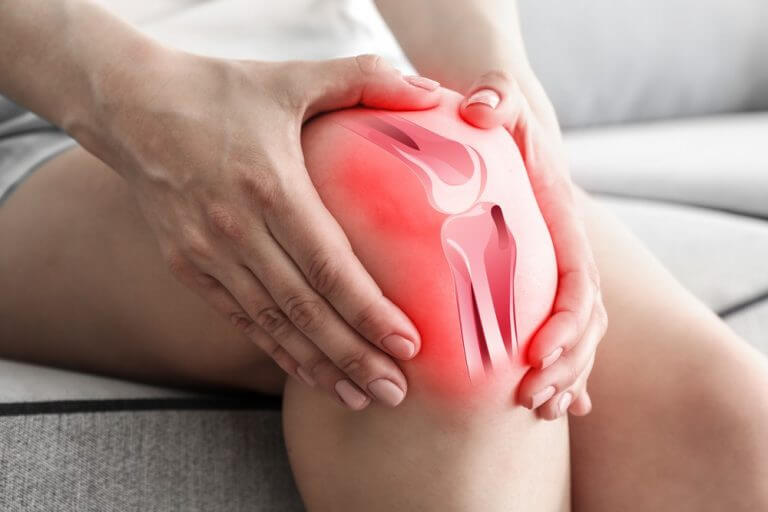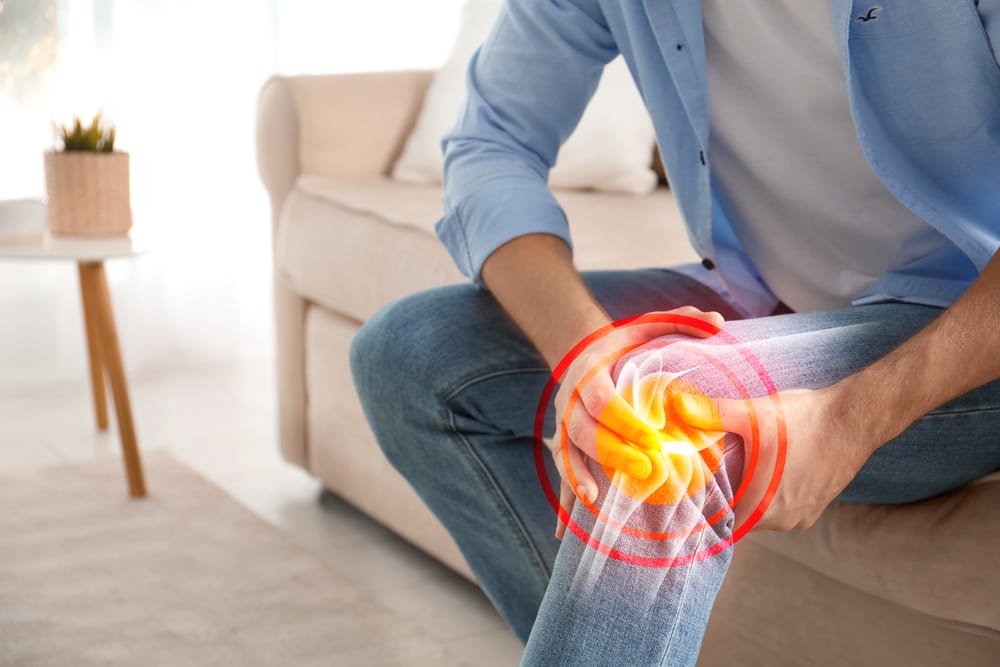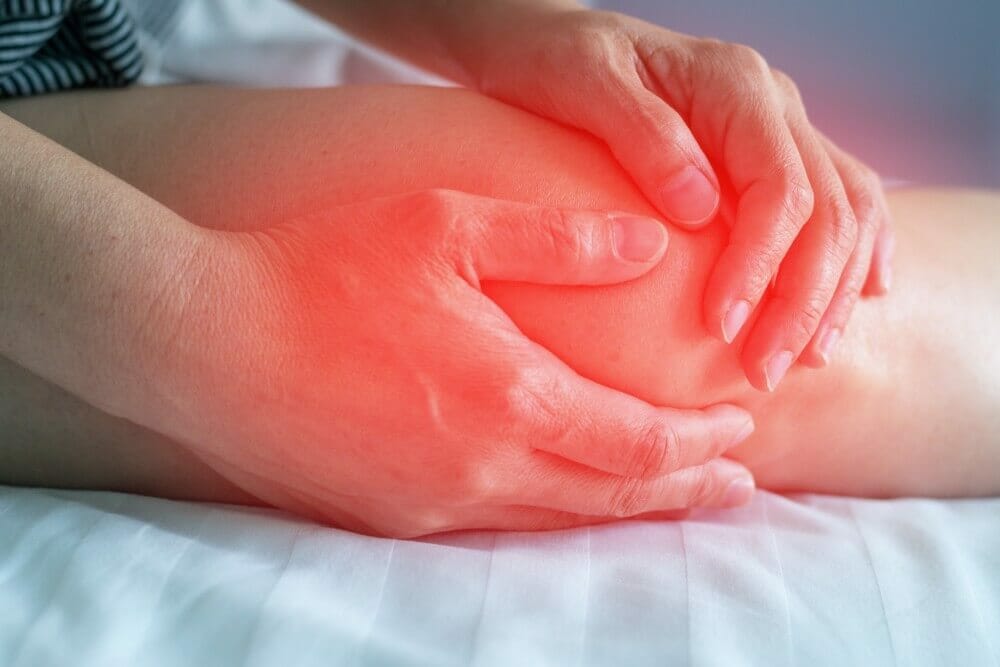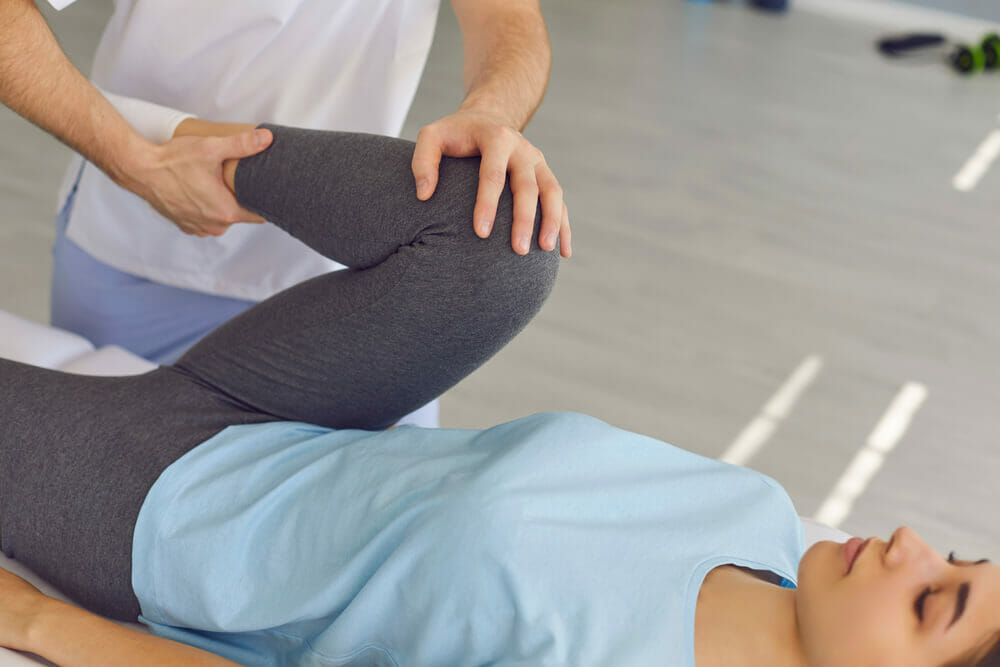
Knee pain is a common problem that can be either an acute or a chronic condition. There are many types of knee pain and many causes, such as an injury or arthritis. However, Perth physiotherapy provides effective treatments to reduce pain and improve your overall knee function.
Anatomy Of The Knee
The knee involves four bones; the femur (thigh bone), the tibia (shin bone), the patella (knee cap) and the fibula (the thin lateral leg bone).
- Femur – This bone connects the hip to the knee and is also known as the thigh bone.
- Tibia – This bone connects the knee to the ankle and is also known as the shinbone.
- Patella – Also known as the kneecap, the patella is the small bone on the front of the knee.
- Fibula – This is a thinner, shorter bone that runs parallel to the tibia along the outside of your lower leg.
The Knee Joint
The knee joint is a synovial joint. This means the joint is lined with synovium. The synovium produces fluid to lubricate and nourish your knee joint. The three major bones that make up your knee joint include the patella, the femur, and the tibia. The patella moves on the femur in the “trochlear groove”.
Your knee also consists of other components which include cartilage, ligaments and muscles.
What Type Of Knee Pain Do You Have?
There are many different types of knee pain and you will need to get a professional diagnosis to determine the cause. Some of the common types of knee pain include:
Arthritis related to knee pain:
- Rheumatoid arthritis
- Osteoarthritis
- Septic arthritis
- Gout
Injury-related knee pain:
- Damage or irritation to the bone, ligaments, cartilage, muscles or tendons of the knee.
- Bursitis – Inflammation of the fluid-filled sacs which cushion the knee.
Other types of knee pain:
- Patellofemoral pain syndrome – pain around the kneecap
- Referred pain from the lower spine or hip
Knee Pain Symptoms
Knee pain can have other symptoms besides pain. Depending on the cause, other symptoms related to knee pain include:
- Bruising around the knee
- Inflammation
- Clicking or locking of the knee
- Inability to straighten your knee
- Tightness
- Knee weakness
What To Expect From Physiotherapy For Knee Pain?
Numerous types of knee pain can be effectively treated with Perth physiotherapy. Physio for knee pain consists of a variety of treatment options, and your highly skilled physiotherapist will prescribe the most effective treatment for your type of knee pain. Some of the physio treatments used for knee pain include:
- Manual therapy – Joint mobilisation is an excellent technique that helps to improve function and reduce pain.
- Massage – Effective when muscle fatigue or tension is contributing to the pain.
- Taping – Taping provides support and can help to ease the pain for certain knee injuries.
- Strength training – Improving muscle tone helps with recovery and prevents further injury.
- Dry needling – This can help to improve muscle function and reduce pain by easing muscle tension.
If you’re experiencing knee pain, whether it has come on suddenly or is a more chronic problem, contact our friendly team at Integrity Physio to discuss your treatment options.




